In an ideal world, you will be reading this by the time I have made it to Beijing, via Shanghai, Kunshan, and then Suzhou. My research programmes in China are keeping me busy, and I'm hoping to visit my friends in Maliandao's Taochaju and Fengmingyuan while in the capital, in addition to (if he's not in Yunnan) Mr. Dog. I am hoping it all works out...
Before I left, I spent some time with some purchases from dear departed Origin Tea. I wish I'd got to know Origin before they stopped trading, as I have had some very nice, and very nicely-priced, older teas from them. (Or, rather, "him" - I think his name is Tony?)
This is your normal "white wrapper" entity: it's of known origin, its age is probably a guess, but it turns out that the tea is very decent. Let us not get ahead of ourselves, however.
What you probably cannot see here is that the tuocha is rather small, being just 100g. It was a mere £7.50, which is deeply inexpensive for something that might have some age. I admire the fair pricing.
When brewed, it looks rather appealing:
This tea was at the recommendation of TG, my friend from East Anglia, and he certainly knows his onions. And his pu'ercha. The healthy little leaves have a shicang [humid-store] aroma, and they are dark (and perhaps even a little dull) on the exterior face of the tuocha, as if the humidity had been intense. I expect, from their appearance, that they are a touch younger than "1990s", but that is not terribly important.
Far more important is the fact that the orange-red soup carries the flavour of pure, sweet mould that reminds me of the Hunan Fuzhuan that I loved back in July. The body of the brew from this tuocha is silky; there is little huigan, just the dark, raisin-like flavour of sweet mould. The humidity has been a bit extreme (hence the dull surface): all that is left is the fuzhuan mouldiness, and so it tires early. It is cheap and quite cheerful, though.
Much more serious is the 1980s "wild arbor" maocha, of which the following sacks arrived...
This loose-leaf tea looks rather tasty, as you might agree from considering the photograph below. It has the chocolate colour of old maocha.
Even though the first infusion shows that the tea is not yet fully awake (which is unusual for maocha), the initial aroma is solid in its sweetness (if short-lived), while the soup is soft and rounded.
It transpires that this tea is not very thick, and that it requires some long brewing to get proper "tea" out of it, but the result is excellent: as pictured above, we find ourselves with a fantastically dark soup. Brewed long and hard, with lots of leaf, it is tarry and sweet, while always being soft and comforting on the stomach.
Yes, it is weak, in the way of most aged loose-leaf pu'ercha, but you can always add more leaves. Under-the-tongue dark sweetness prevails. At the end of the session, I have used quite a lot of leaves, and so I pop them into a container and take them to my lab for extending brewing as a "background" tea. This one is priced at £70 / 300g. Not cheap, and probably from the 1990s rather than the 1980s, this is worthy of comparison to unaged modern shengpu.
Changing gear, but staying in the 1990s, I'd like to include another humid cake - this time from white2tea.
The leaves do, indeed, seem as if (i) they hail from the 1990s, and (ii) have been through Hong Kong. There's a good chance they were there in Hong Kong when the British were, in fact. The dear old chancellor of our university, the Lord Patten of Barnes, often likes to talk of his time as governor of the Fragrant Port, and he speaks with genuine affection.
This is sharp, potent tea. It is thick, dark, and red, as you will conclude from examination of the image below. The sharp sweetness dwells under the tongue for whole minutes. I am reminded that Mr. Dog does seem to know his way around a teapot.
Amusingly, his label notes, "I have been CHUGGING this lately".
I can see why. It is eminently chugworthy. I enjoy its density and cleanliness, which is admirable for old HK tea. There is no shicang [wet store] character, as if it had been aired out, but it has the thick tar-like profile of tea aged in significant humidity.
What enormous fun. At $150, it is definitely worth considering. Again, compare that price to modern, unaged shengpu and see which you'd prefer. I have made my choice...
Addendum
June, 2015
This is a session with the 1980s maocha. The close, sweet humidity of the extraordinarily long leaves is calming. I feel a little dizzy after being woken at a very early hour by dear Xiaohu. This is a good tea, for old maocha. Not weak, as one might expect, it is instead energetic and (damply) sweet. Even its deep, red soup is reassuring.

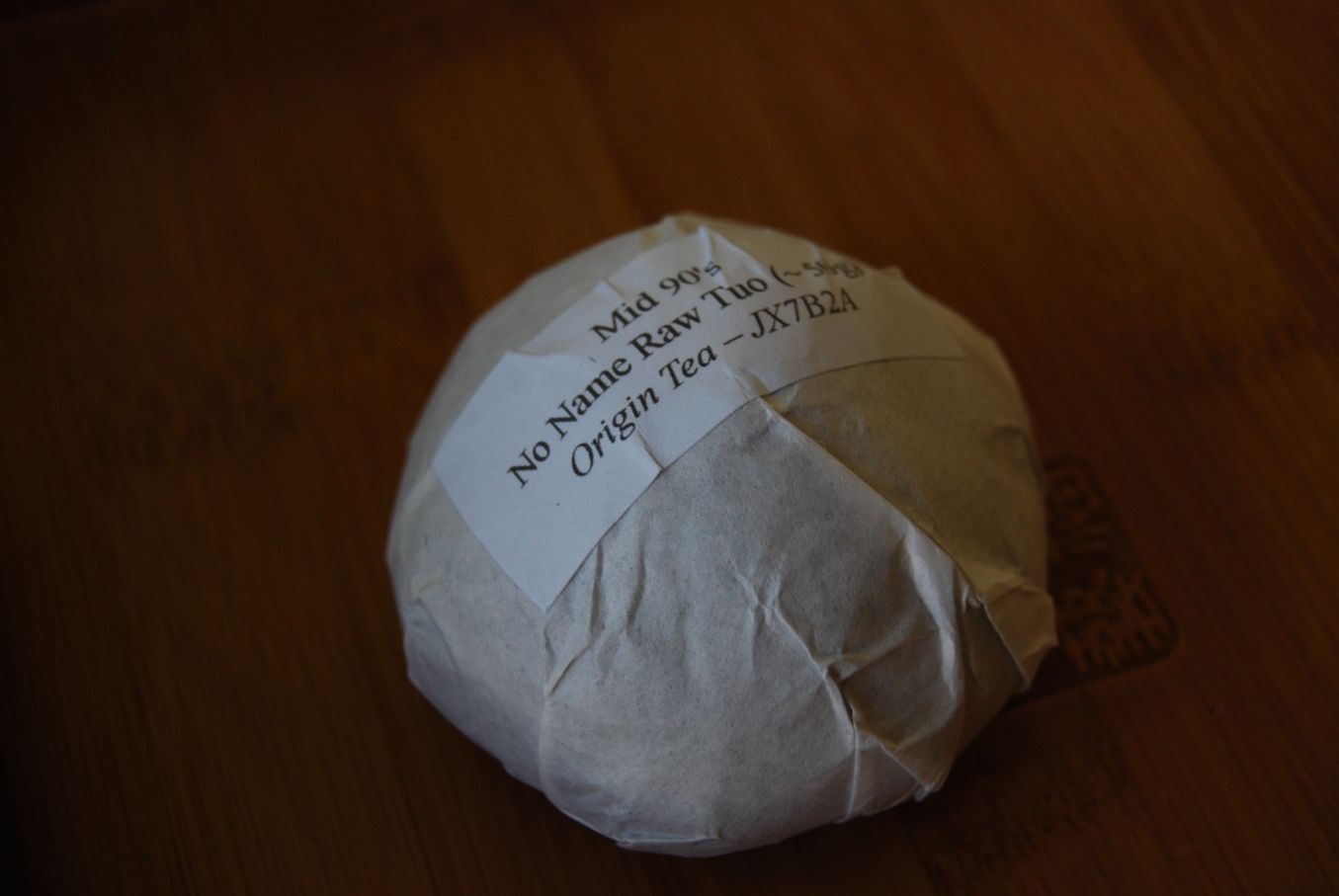
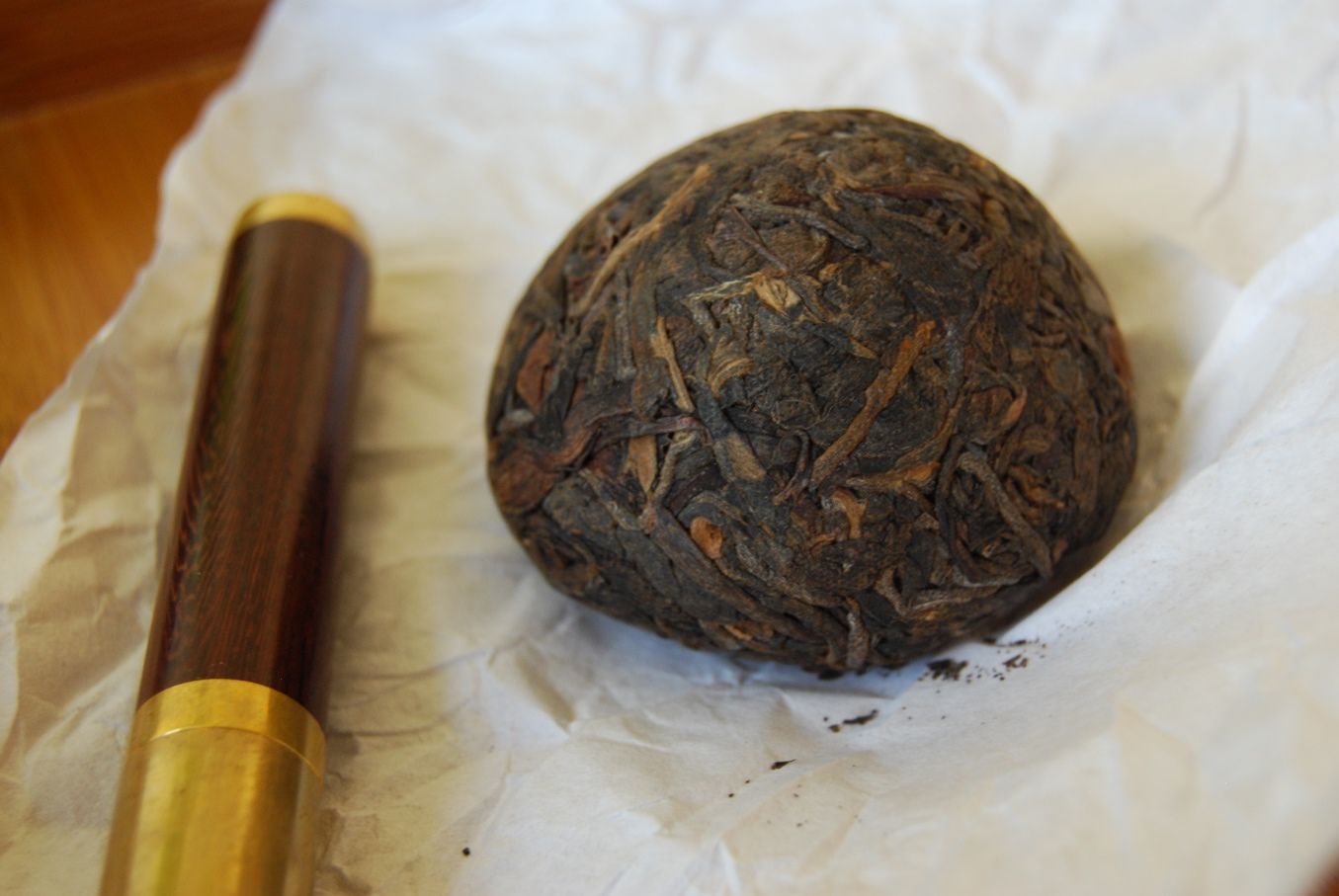
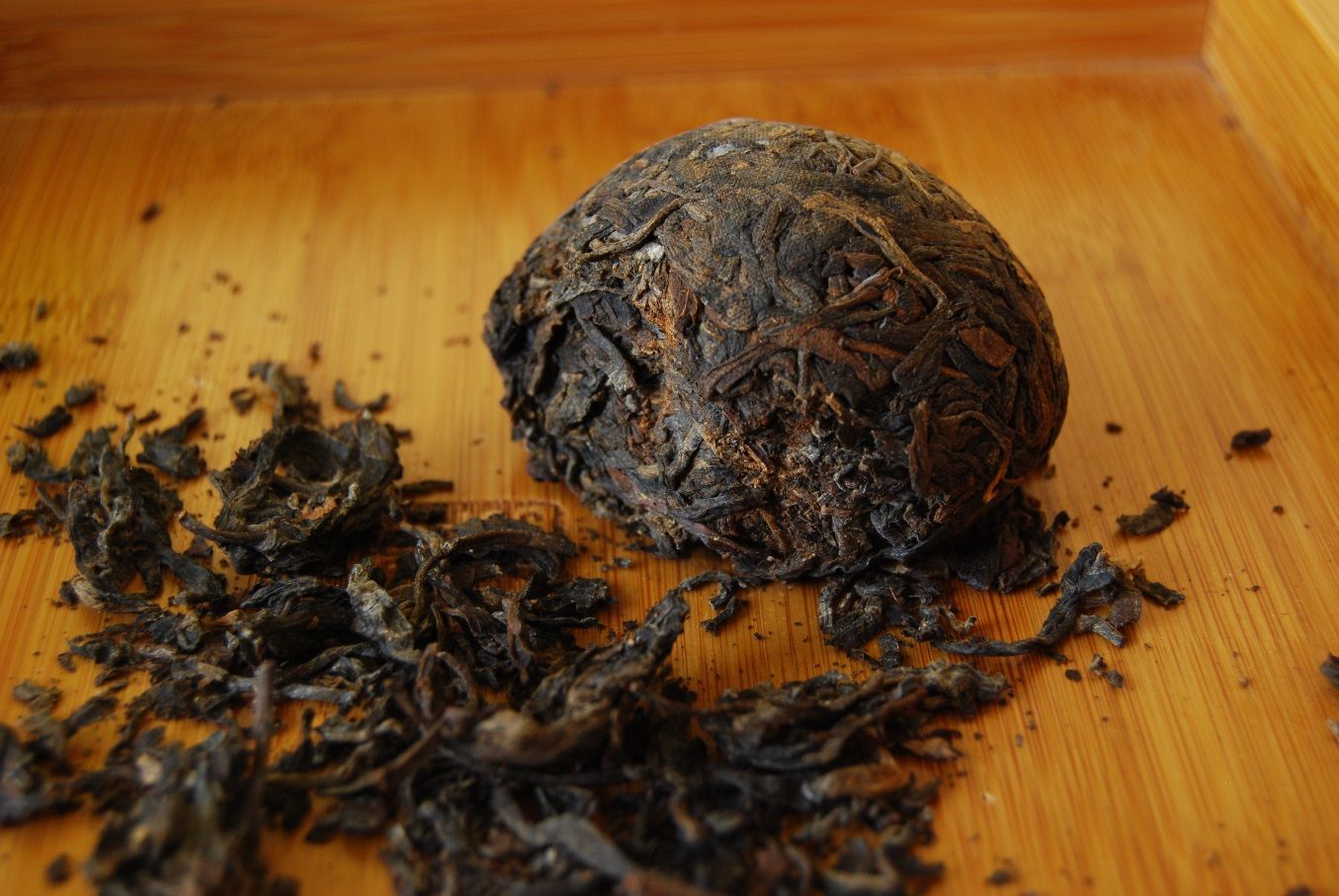
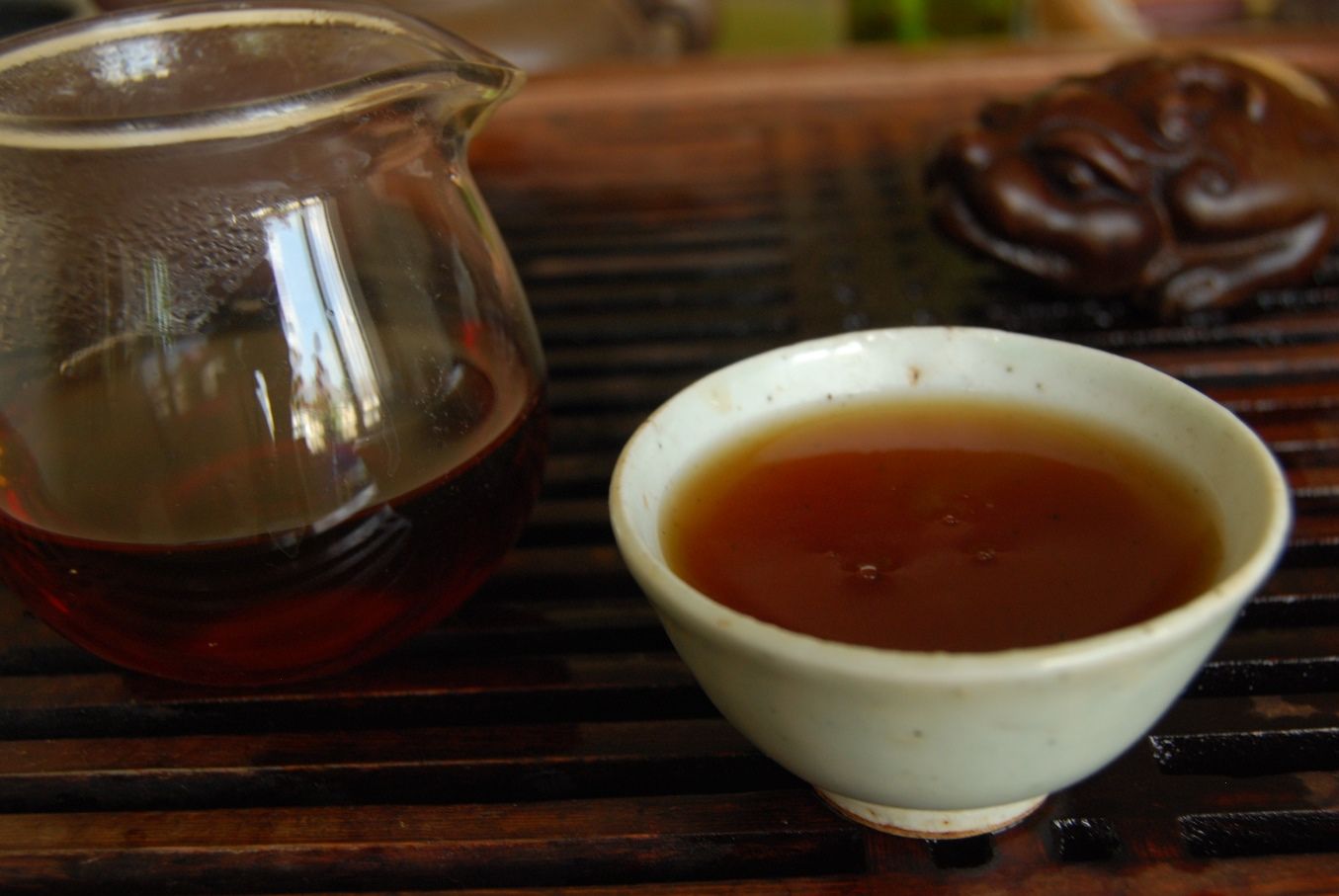
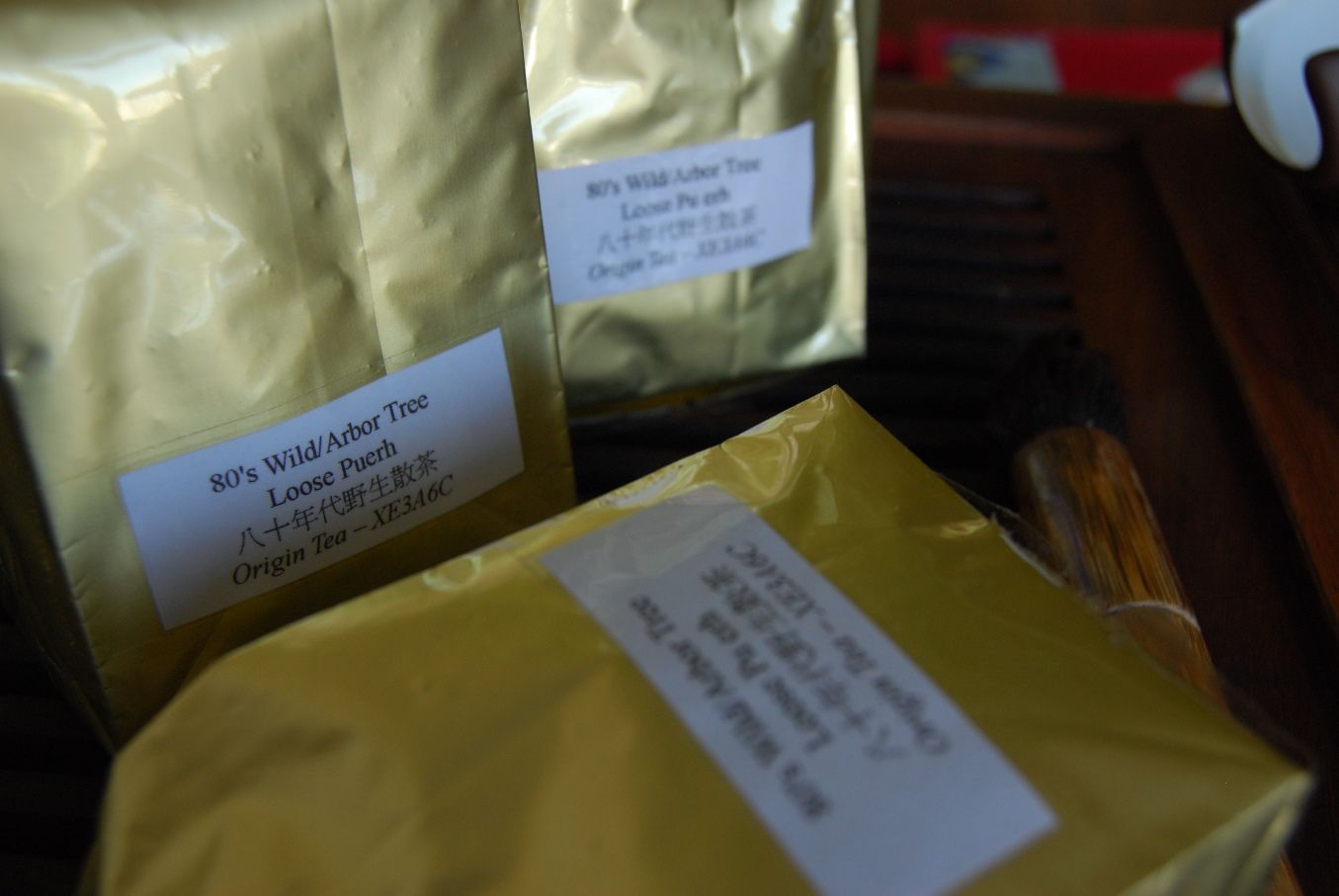
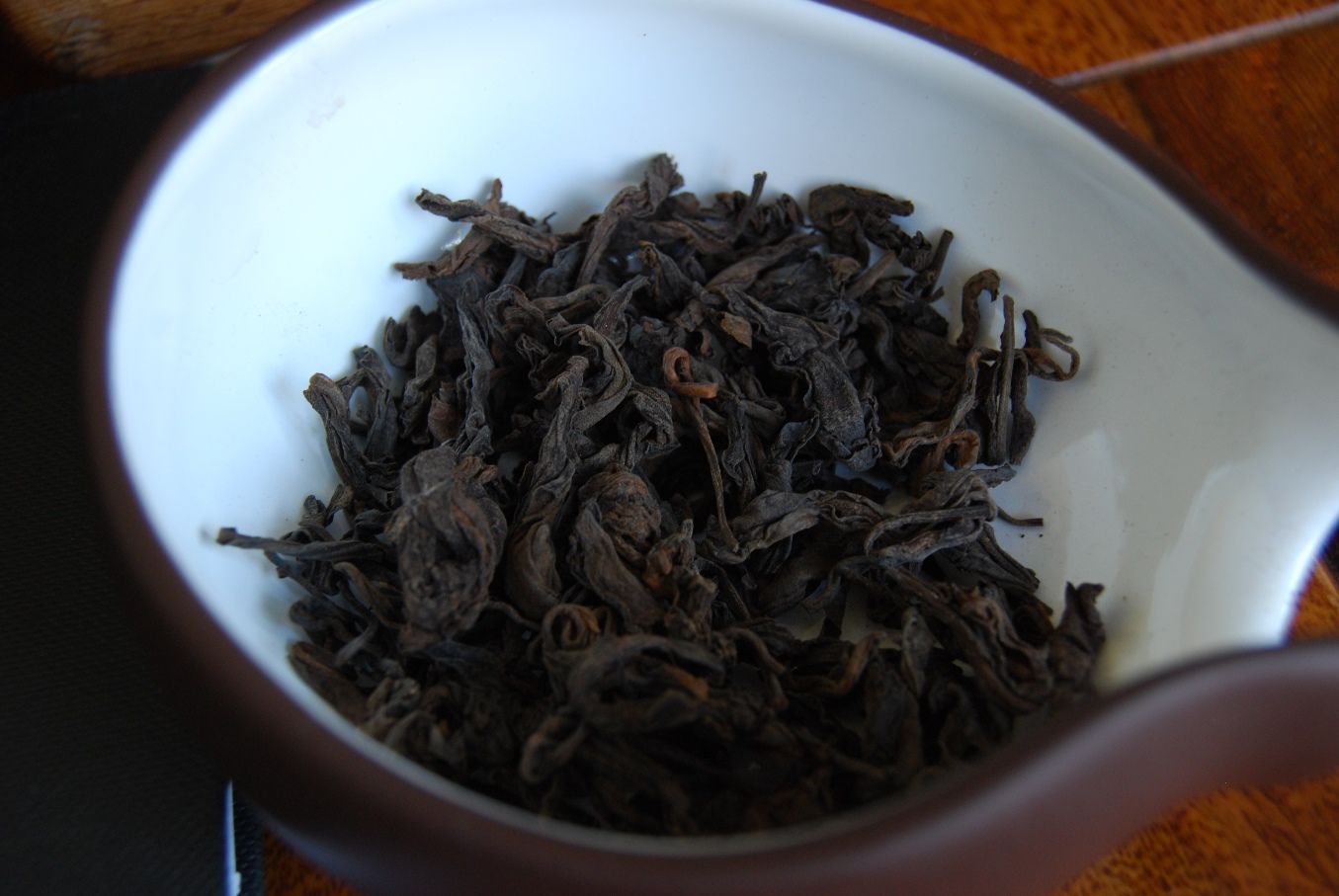
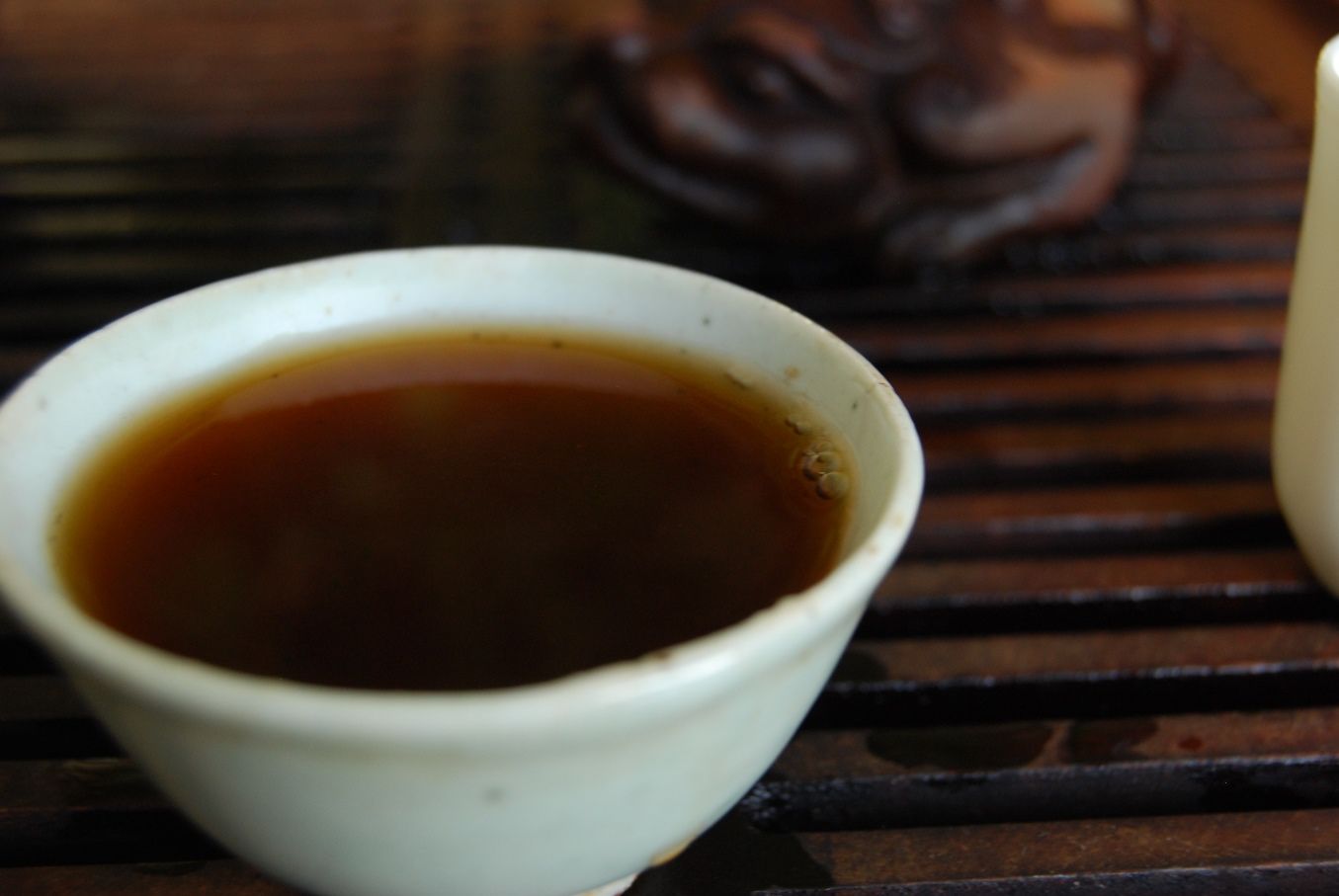
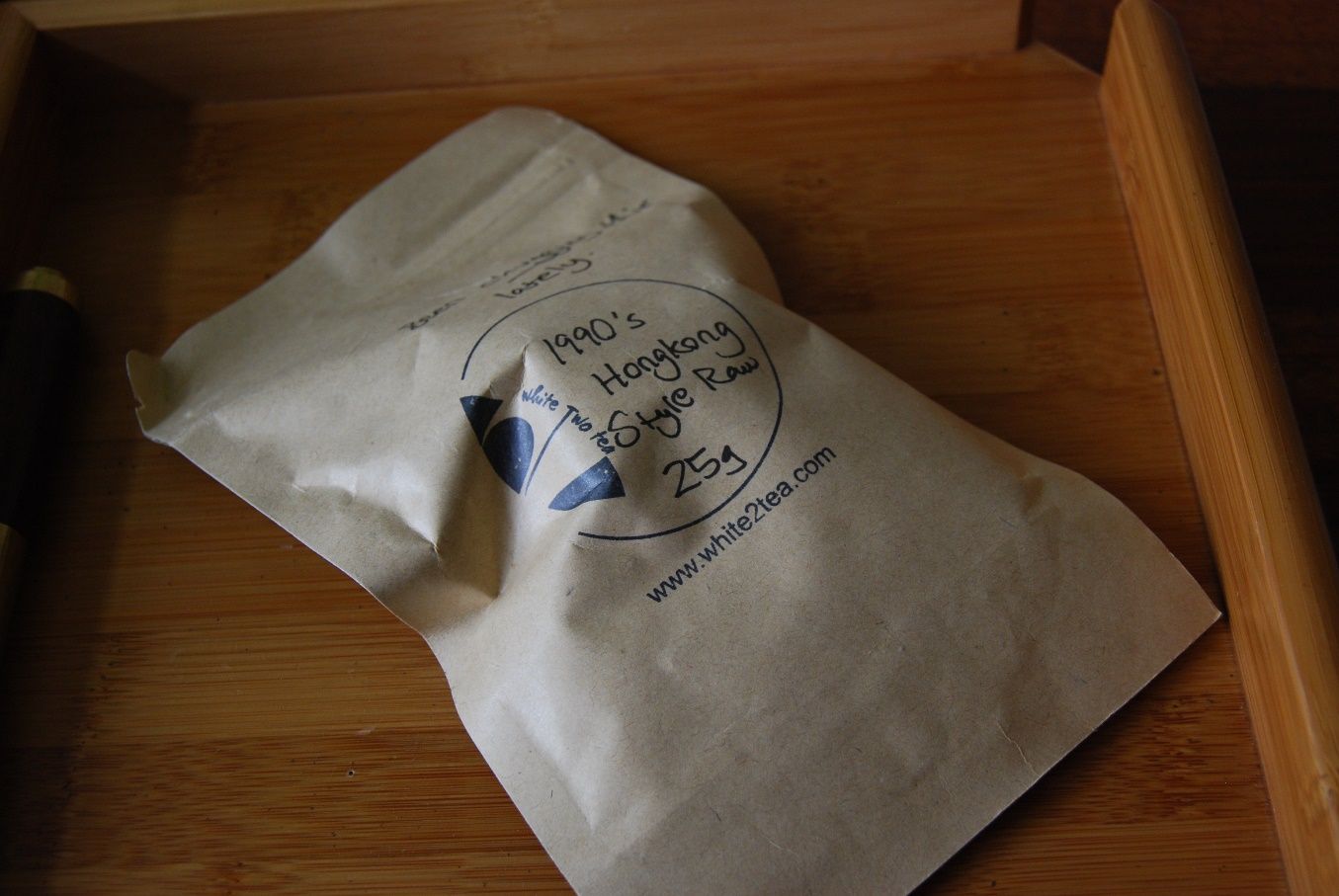
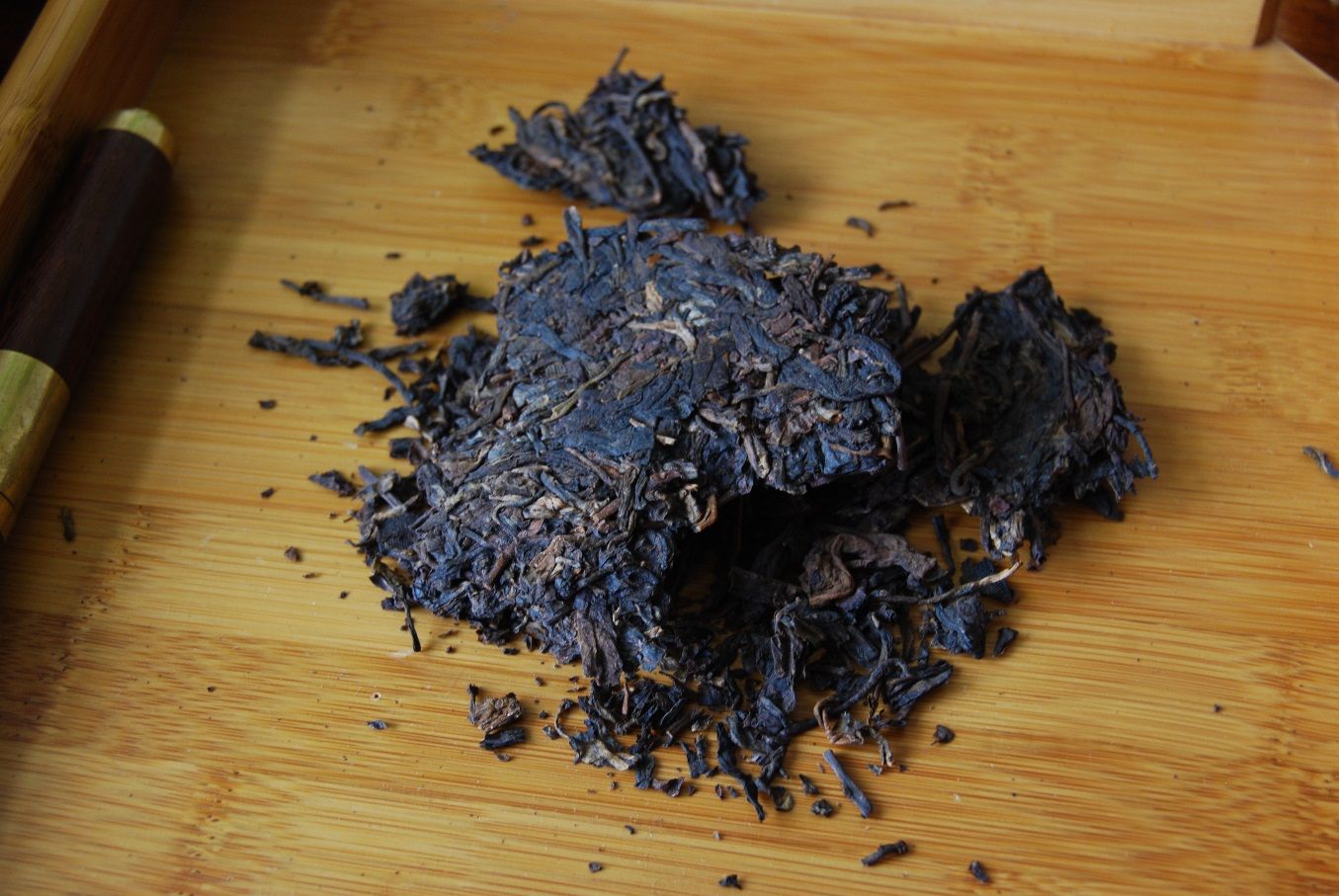
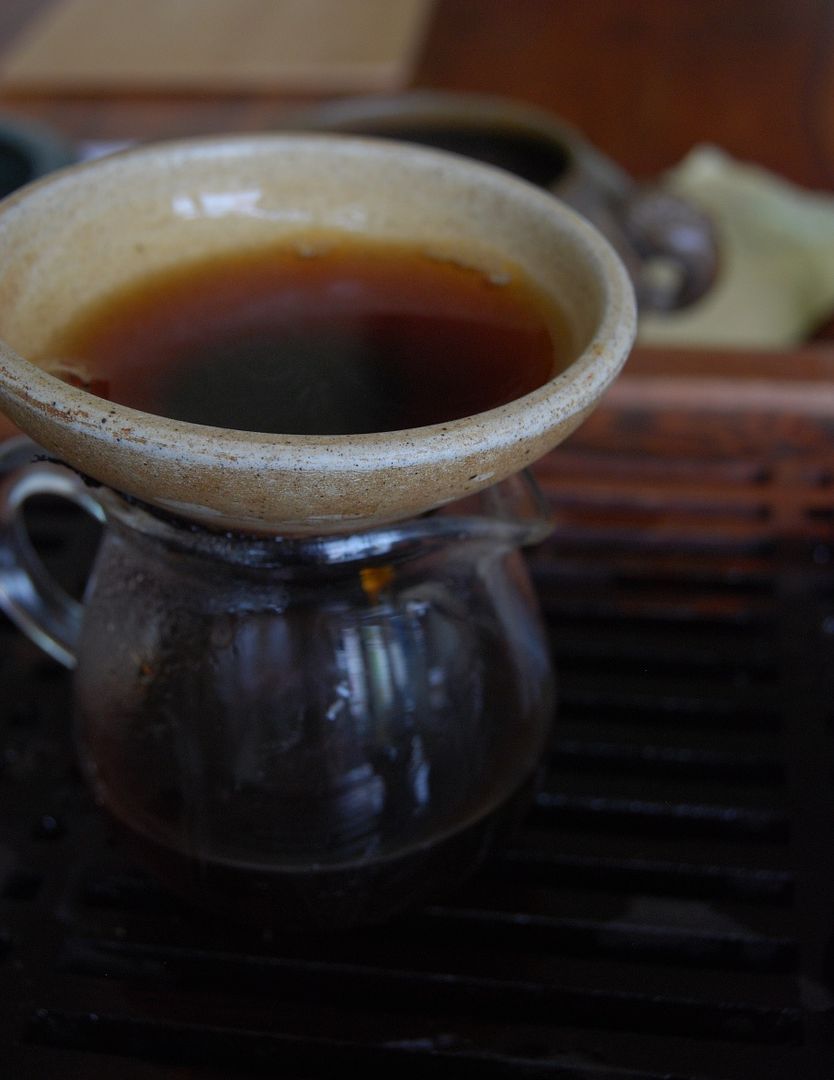
4 comments:
sounds like I'm trying the W2T HK stored tomorrow.
I have a (I believe early?) 1980's loose sheng as well (not from Origin) and I agree that it's weak in body, but a nice tea overall.
Dear Jake,
The white2tea HK is good! It's not "haute cuisine" but it is darned satisfying.
Toodlepip,
Hobbes
Just out of curiosity, what kinds of tea and tea-equipment do you take with you travelling? Certainly, it isn't difficult to find tea travelling in China, but do you bring at least a Gaiwan and a couple tuo's?
Dear Ginko,
I'm not one of those people that travels with teaware - I just "go native" and drink with the locals. :)
Toodlepip,
Hobbes
Post a Comment